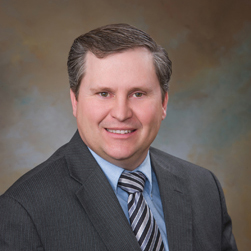News
May 22, 2018
Educating educators through FLP
Topic: Education

Twice a month, NDFB President Daryl Lies will voice the Dialogue with Daryl podcast. On the second Tuesday of the month, he will weigh in on important issues the organization is working on. On the fourth Tuesday of the month, he will highlight an NDFB program or service. Podcasts will run approximately 2-3 minutes.
Subscribe to the RSS feed for NDFB's Dialogue with Daryl
Subscribe to the twice-a-month email alert for NDFB's Dialogue with Daryl
May 22, 2018: Agriculture is the foundation of our society, so it only makes sense that an organization like NDFB would be instrumental in providing as many opportunities to help educate people about the important role agriculture plays in all our lives through programs like Food, Land and People. Click on the hyperlinks in the transcript below for information related to the topic.
Download the Educating educators through FLP mp3
Read the transcript:
How important is it to teach agriculture in our schools? At NDFB, we believe it is very important to educate everyone when it comes to agriculture, their food, the natural resources around us and how they are used responsibly, and the benefit that each and every person receive from agriculture.
Farming and ranching is the backbone of not only our communities and state. It is the backbone of our country. It’s the backbone of the world, because food production is the one thing that is a necessity of every man, woman and child living on our planet we call earth.
At NDFB we feel it is necessary to have the opportunity to get in front of teachers through NDFB’s Food, Land and People program. And provide them with the reference materials, and to provide them, also, with the lesson plans and resources for reaching across many disciplines to help students better understand that relationship of agriculture, the environment and the people of the world.
These hands-on lessons provide critical thinking activities, timely background information, measurable objectives and references to teach about food, natural resources and consumers. There are several opportunities for teachers to participate in this continuing education credit, good for a 600-level credit through NDSU. Classes will be available in Jamestown, Valley City, Fargo, Bismarck-Mandan and Thompson beginning in June with the last one ending up in August.
So for a great opportunity to get that continuing education class if you’re a teacher, and to receive an agricultural training and materials to implement in your classroom, contact the NDFB office to be able to sign up for this high-quality continuing education class that we feel, at NDFB, is important to provide to as many educators as we can.
